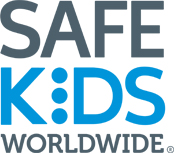You are here
Search
There is nothing that I can remember loving more as a kid than riding my bike with all of my friends. Every ride was an adventure and we would stay out as long as we could.
Now as an adult, I still hop on a bike every opportunity I get – and it’s especially fun to ride with my nephews, Jake, 4, and Nathan, 7, who are actually starting to keep up with me, which is saying something.
My family has always been large, but in the last few years we’ve grown significantly as my generation has made the transition from being the kids to being the parents. This just makes our time together even more enjoyable especially when we head to one of our favorite places: the beach.
There’s nothing quite like watching happy kids building sandcastles, hunting for sea shells, splashing in the waves, and making their own memories, just the way my cousins and I did when we were kids.
But now that I’m an aunt, I have to admit, safety is on my mind, too.
Whether it’s in motorboats, sailboats, kayaks or canoes, there’s a good chance most of us will be hanging out in some kind of boat this spring or summer. After all, it’s one of the best ways for family and friends to spend time together and experience the freedom that comes from cruising on lakes, rivers and oceans.
We all know how important it is to wear sunscreen even on cloudy days but did you know about these five simple tips to ensure your adventure on the water is as safe as it is fun?
The calendar tells us that summer starts on June 21. But for me, summer starts on Memorial Day weekend, when I join aunts, uncles and cousins at the beach to open our old family cottage for the season.
Whatever your plans are for your family this summer -- barbecues, swimming and boating, camping and hiking, long family road trips -- Safe Kids is here with our top summer safety tips to help keep your adventures as safe as they are fun.
National Organizations for Youth Safety hosted a Twitter Chat, inviting partner organizations, parents and youth leaders to join a conversation about the state of youth traffic safety today – and what we can do to improve it.
Following tragic death, safety advocates remind caregivers to never leave a child alone in a car and to be on the lookout for children left in cars
Fort Worth, Tex. – As temperatures continue to rise, government officials and health professionals today joined Safe Kids Tarrant County, led by Cook Children’s, at Tarrant County Public Health to discuss ways to prevent child deaths and injuries from heatstroke in hot cars.
Water, summer and kids having fun are synonymous. That was true for me when I was young, whether it involved a swimming pool, the ocean or even a big scoop of water ice in my native Philadelphia.
We work at Safe Kids to be parents’ partners so that the job of parent can be the joy we all envision, and less of the stress that it can be at times. We hope the diligence parents need to exercise around water will lower your stress level. Too much of a good thing can be perilous and the difference between fun and tragedy can happen in the snap of fingers or just a few inches of water.
No one starts their day anticipating getting into a car crash. But teens like Presley teach us that it only takes one time riding in a car without bucking up for a life to be changed forever.
Presley's Story
"I lost my best friend because we didn't buckle up."
Eight years ago, Presley lost her best friend, Lindsay to a tragic car crash when the pair were driving home from a nearby gas station. It was a rainy fall night and Lindsay hit a curve in the road and lost control of the car. The car ran off the road, crashed into a ditch and flipped several times.
Washington, D.C. – More teens die in motor vehicle crashes than from any other cause of death, about 2,500 per year. Fatalities are split almost equally between teen drivers (56 percent) and passengers (44 percent). In half of the fatal crashes, the teen was not wearing a seat belt. To develop strategies to drive down the number of teens killed in cars (which claims fully 25 percent of all preventable injuries among children), Safe Kids Worldwide conducted a survey among teen passengers and drivers.
Sixteen years old. The age that came with the one little piece of plastic I’d been waiting for since my first toy car. I took the class, passed the test, waited in the line, and after what seemed like forever, the woman sitting in the small cubicle at the DMV handed it to me: my driver’s license.
